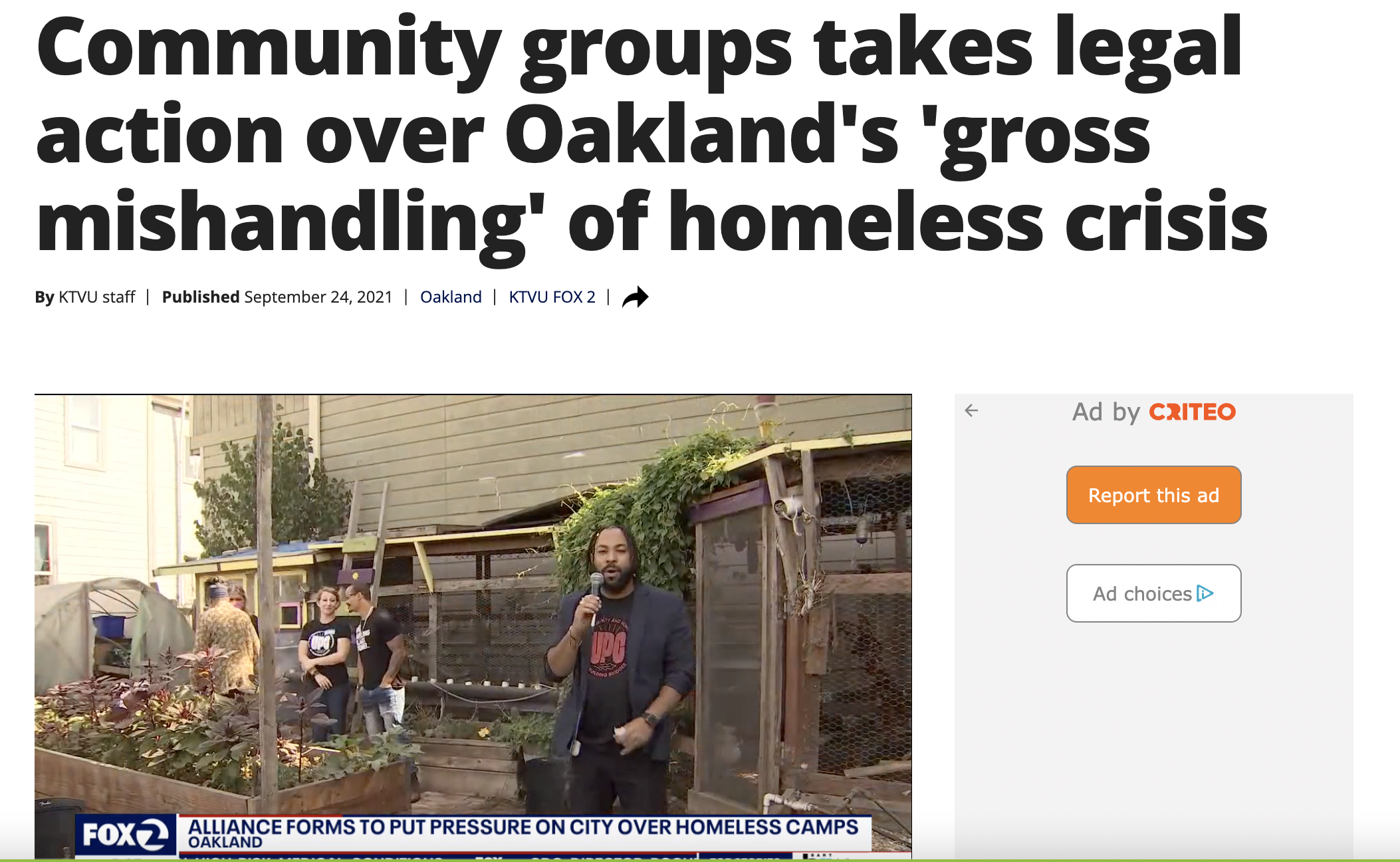Accessible Housing
-Oakland’s homeless population has grown 147% in the last five years and an additional 22% from 2019-2022.
-Oakland accounts for almost half of the homelessness in Alameda County, with over 5000 people living on the streets and in shelters.
-In 2021, NTO sued the City of Oakland for failing to enforce its own, unanimously passed Encampment Management Policy. NTO demands accountability from our elected officials for enabling the worsening of this crisis, which poses consistent danger to the lives of the housed and unhoused alike.
-The Bay Area is suffering from an epidemic of drug tourism, people flocking to our cities to take advantage of the lack of enforcement of laws regarding public drug use, public camping and theft. It is time that our electeds be honest about the forces driving this crisis. Housing first policies are illogical in the face of our region’s spiraling drug crisis. It is inhumane to leave people suffering on the streets without prioritizing addiction treatment and shelter services.
-While “official data” states that 78% of Alameda County’s homeless population lived locally prior to becoming homeless, the means of data collection are highly flawed and paint a dishonest picture of the problem. Until neighbors can unite and name the problem for what it truly is, our electeds will remain unaccountable.
-Stanford psychology professor and addiction specialist, Dr. Keith Humphreys, elaborated on the flawed system our city uses to track this problem. He said:“ A question like ‘Where were you when you recently became homeless?' or ‘Where did you last have a roof over your head?’ could generate a technically correct response of "Oakland" from someone who moved to the city from somewhere else where they were homeless and stayed in a single room occupancy hotel for a week before their money ran out. Given that most housed residents of Oakland are not originally from Oakland, it's hard to believe that most homeless people are natives to the city”
-SFPD Chief Scott recently reported that only 3 out of the last 45 people arrested for public drug use were from San Francisco. Our problems are regional and in the wake of failed policies, we are all feeling the crushing impacts of drug tourism.
Effective Models for Dealing With This Crisis
-NTO highly recommends this enlightening documentary on the root causes of homelessness, presenting pragmatic and innovative solutions for tackling the Bay Area’s explosion of homelessness. It highlights the work of Haven For Hope, a San Antonio based non-profit which approaches homelessness from a person-centered perspective.
They treat individuals based on their individual problems and needs, providing services for addiction, mental illness and poverty-induced homelessness. Since their campus became fully operational in 2010, homelessness in San Antonio has decreased 77%, saving money for other vital civic services in the process. Meanwhile, our homeless population has risen exponentially. As a result, there have been massive increases in spending on inefficient models. It is time that we organize to advocate for effective, pragmatic solutions.


